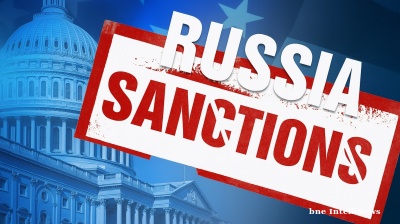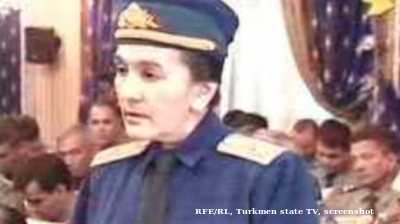Those who followed the arrest of Gennadiy Korban, the former deputy governor of Dnipropetrovsk oblast, leader of the political party Ukrop and a close ally of oligarch Igor Kolomoisky, agreed it was all rather reminiscent of a TV drama, with masked men storming offices, doctors arriving in court to save the defendant, accusations of politically motivated persecution and fights breaking out next to the courtroom.
Korban’s supporters say he is the man who prevented Dnipropetrovsk, one of Ukraine’s main industrial hubs, from slipping out federal control into the hands of pro-Russian separatists. They praise him for generously financing volunteer battalions, and speaking out about the wrongdoings of the current authorities. On the other hand, the Prosecutor General’s Office accuses him of stealing large sums of money from the Foundation for Army Support, kidnapping people and threatening his opponents.
Supporters of Korban see this as a case political persecution; supporters of President Petro Poroshenko see it as an example of de-oligarchisation and a cleaning up of the political system. However, a closer look at the details reveals a much more complicated picture, showing that reality is far from what both sides claim it to be.
Kolomoisky and Korban
Korban gained national recognition in 2014 when he was appointed deputy-governor of Dnipropetrovsk oblast by the powerful Kolomoisky. His oligarch patron was among very first to realize the potential of volunteer battalions and helped created them.
Korban soon became, so to speak, the spokesman for Kolomoisky’s initiatives, like financing volunteer battalions, helping families of killed soldiers, and even announcing a reward for Donbas locals for bringing separatists or their weapons to police stations. But under this loud and patriotic cover many less admirable things were taking place.
Korban is widely known in Dnipropetrovsk as a corporate raider. This is how he started his “career” in early 1990s and this is what he was responsible for in Kolomoisky’s team. And after capturing political power, he continued seizing property and businesses, but now backed with more political power. Indeed, under Kolomoisky’s rule Dnipropetrovsk oblast was a strong pro-Ukrainian outpost, yet in order to achieve that Kolomoisky and his team basically turned it into an independent principality. Orders from central government were often simply taken into account, not obediently followed. When in July 2014 Korban was running to become an MP in the election for the Chernihiv constituency, he literally bribed every possible voter, starting with distributing food packages and ending with giving people money in return for their votes. Absolutely unacceptable behaviour for a politician, especially one claiming to represent a new type of Ukrainian politics.
At the same time, though, the whole process of Korban’s detention was in absolute opposition to the idea of a new Ukrainian politics. Neither politicians nor the authorities, it seems, have given up on the so-called “Yanukovych-style” of behaviour of our ousted president, which is based on the rule of power, not the rule of law.
Korban was detained in Dnipropetrovsk, then taken by officers of the security services to an unknown destination. At first the information was that he had been moved to Chernihiv (approximately 540km from Dnipropetrovsk), yet five hours later it turned out he had been taken to Kyiv. The geography of this case is interesting, because Korban was accused of crimes committed on the territory of Dnipropetrovsk oblast and the Dnipropetrovsk prosecutor is leading the case, but the court hearings are taking place in Kyiv. Moreover, the prosecutor’s office only announced the reasons for Korban’s detention after the media began taking an interest the day after the arrest.
Then there is the whole drama involving the prosecutor, Korban and the doctors after he fell ill in the courtroom, then taken to the hospital, then returned from the hospital by the security services in the middle of the night right after a reported heart operation. If we forget for a moment who Korban is and focus on the performance of the judiciary system, we can see that it is far from being independent and far from acting according to the laws and procedures.
But Korban’s detention can’t be considered alone as an example of selective justice; it is just one of many episodes of an ongoing confrontation between Kolomoisky and Poroshenko.
Kolomoisky and Poroshenko
Everything began with the growing popularity of Kolomoisky as governor of Dnipropetrovsk oblast. The rise in the “good oligarch’s” public opinion ratings was so quick and precipitous that Poroshenko perceived it as a threat. The president retaliated by aiming to deprive Kolomoisky of control over Ukrtransnafta, a lucrative state-owned company dealing with oil transportation. Kolomoisky reacted by sending in groups of armed men to “protect” the headquarters of Ukrtransnafta. It was a bad move. Poroshenko used it to accuse Kolomoisky of treating the volunteer battalions as his private army, which legitimised the state’s efforts to take the militias under its control, which for many months was perceived by Ukrainians negatively.
Following this incident, Kolomoisky and Poroshenko had a long round of talks, after which the oligarch agreed to resign as governor. In the ensuing months, Kolomoisky lost his ally in the Odesa region, governor Ihor Palycia, who was replaced by former Georgian president Mikheil Saakashvili.
That Poroshenko was playing hardball was underscored by the loyal central bank chief ordering PrivatBank to carry out a recapitalization. PrivatBank is the jewel in Kolomoisky’s crown, but also the biggest bank in Ukraine, interference in which would inevitably shake the stability of Ukraine’s whole fragile banking system. Eventually, PrivatBank fulfilled all demands and was successfully capitalized. And just when one thought Kolomoisky’s problems were over, the security services detained Korban.
Kolomoisky is known for secretly supporting different political groupings in Ukraine to avoid putting his proverbial eggs in one basket. But the Ukrop party led by Korban is the first political project directly and fully controlled by Kolomoisky. It’s also worth noting that the main accusation against Korban – the misuse of funds for the the Support for Army Foundation – challenges the very base of Korban’s popularity. Korban without his reputation of being a strong army supporter, patriot and philanthropist would be left with being known as just another corporate raider.
Judging the sequence of events, one could argue that Ukraine is not going back to the selective justice and politically motivated persecution of the Yanukovych era, but is rather going through the process of de-oligarchsation. At least, this is what the president’s supporters are claiming.
But at the same time, the state apparatus is successively attacking Kolomoisky, while other Ukrainian tycoons such as Firtash, Akhmetov and Liovochkin seem to be untouched. This all leads to the assumption that Poroshenko is fighting for power and position, and not trying to resolve Ukraine’s curse of the over-arching influence of the oligarchs. Supporters of Poroshenko say the costly and time-consuming process of de-oligarchisation can’t happen all at once and in all directions, that the president has to fight the oligarchs one by one. Yet Poroshenko’s critics point out that he himself in an oligarch who doesn’t want to destroy the system of oligarch influence over politics, but rather to be the most influential of them all.
One thing is clear: Korban’s detention is one episode in an ongoing fight between Kolomoisky and Poroshenko. Korban was arrested not because he is a prominent political figure, and definitely not the leading opposition politician, but because he is close to Kolomoisky and is running his political project.
Nevertheless, the fight tells us a lot about the current state of Ukraine. Directly or not, oligarchs are still the main actors of our political scene; the prosecutor’s office and judiciary are not independent, they are used by politicians to reach their goals. Judging from how enthusiastically the prosecutor’s office and security services arrested Korban, one couldn’t help but come to the conclusion that Yanukovych and his allies still haven’t been punished because the authorities simply don’t want to punish them.
Korban’s arrest proves one thing: Ukraine is merely at the very beginning of realising that one should play by the rules, not with the rules.
Activist, journalist and co-founder of Global Ukrainians, an international network of Ukrainians worldwide, Kruk was awarded the Atlantic Council Freedom Award for her work communicating the Euromaidan revolution to the world via Twitter. Follow her at @Kateryna_Kruk
Opinion

COMMENT: ANO’s election win to see looser Czech fiscal policy, firmer monetary stance
The victory of the populist, eurosceptic ANO party in Czechia’s parliamentary election on October 6 will likely usher in a looser fiscal stance that supports growth and reinforces the Czech National Bank’s recent hawkish shift.

COMMENT: Ukraine's drone attacks on Russian refineries have probably reduced throughput by 30.4%, less than headline figures suggest
Ukraine has been hitting Russian refineries and caused a fuel crisis that has spead across multiple regions. The headline figure is that oil refining has been reduced by 38% since August, but digging into it and the reduction is likely less.

MACRO ADVISORY: The unintended consequences of Western sanctions
Since 2014, Western nations have hit Russia with a total of 26,655 sanctions (to mid-September 2025), with 23,960 coming after February 2022. The largest target group, with 13,611 sanctions, is state officials, business owners, and oligarchs.

PANNIER: Few will mourn passing of Turkmen Iron Lady Atajanova and Uzbek Grey Cardinal Jurabekov
Their deaths seem to have been conveniently overlooked for the most part by the authorities of today.
_Cropped_1759411324.jpg)

